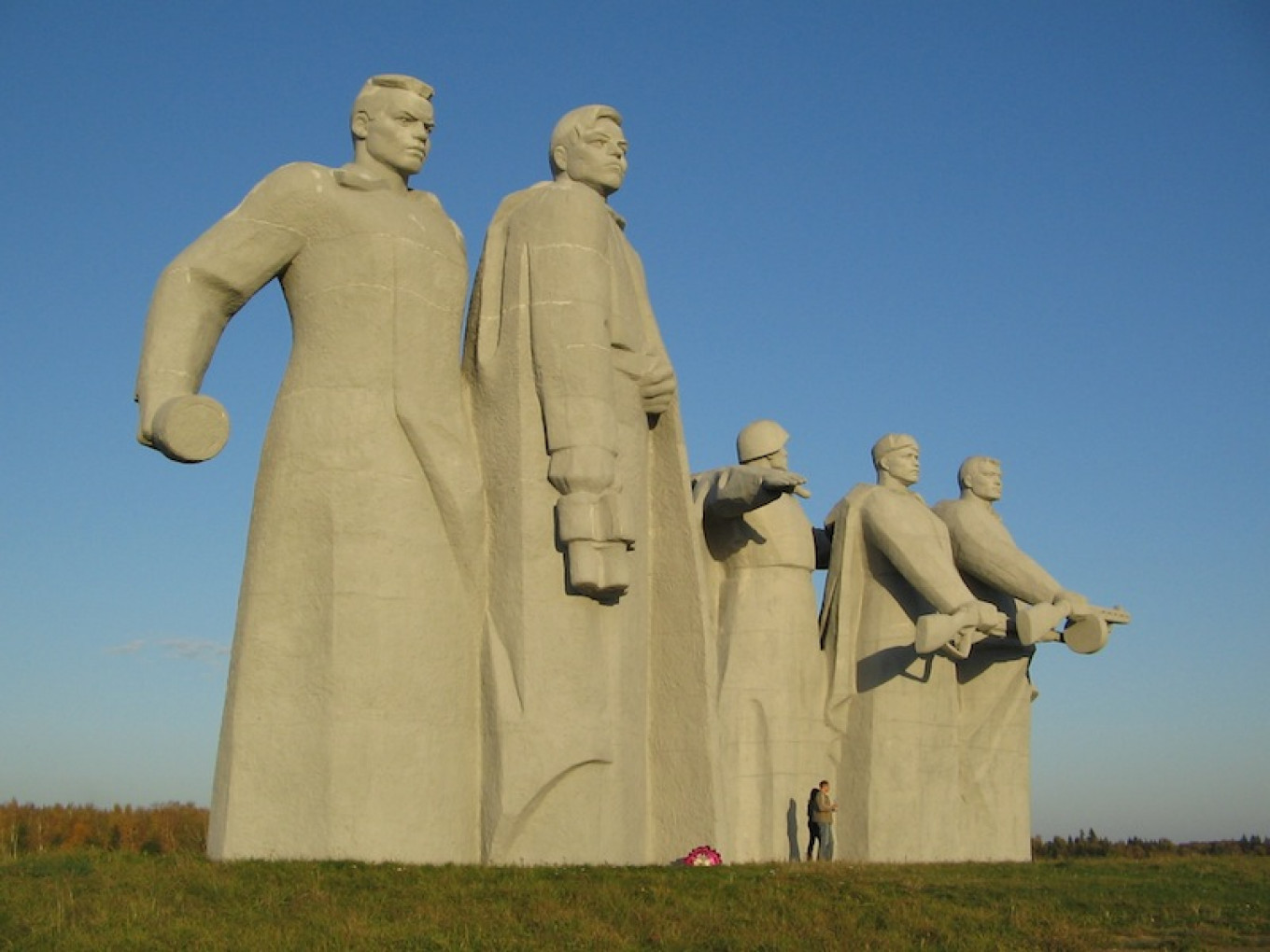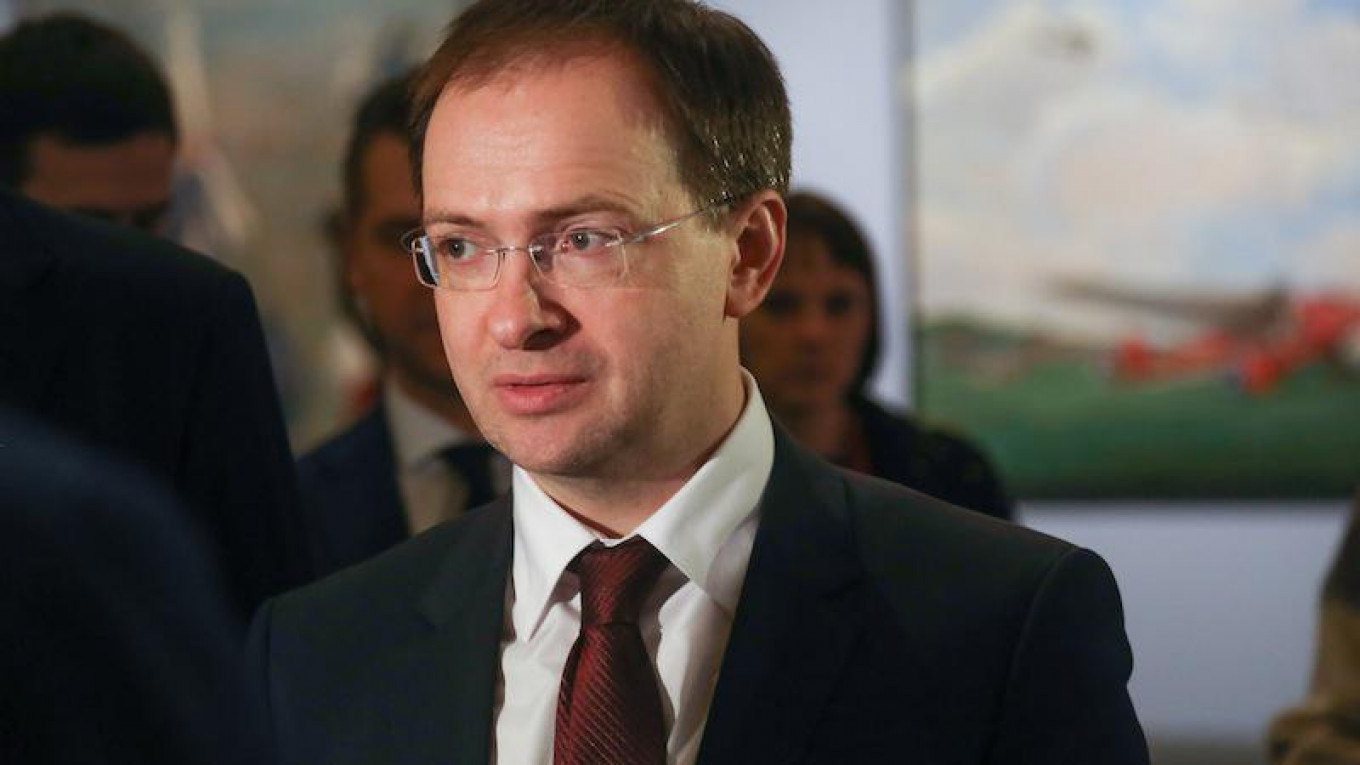The Kremlin has defended Culture Minister Vladimir
Medinsky for calling researchers who challenged official Soviet war-time history "washed-up scum."
Medinsky made the
comments after attending the Oct. 4 premier of a Russian film based on the Soviet Union's heroic World War II battalion, “28
Panfilovtsy.” The minister called attempts by activists to debunk the official story of the soldiers' feats as “sacrilegious."
Presidential spokesperson Dmitry Peskov expressed his support for Medinsky on Wednesday, Interfax news service reported. Peskov acknowledged that there was “a lot of talk about different archival documents," but maintained that “in one form or another the story of the Panfilovtsy's heroism did take place.”
The "28 Panfilovtsy" or “Panfilov's men” were soldiers of the Red Army's 316th Rifle division under the command of General Ivan Panfilov. They were posthumously awarded the title Hero of the Soviet Union for their reported actions during the Battle of Moscow on 16 Nov. 1941. The official Soviet history claims that the 28 men managed to knock out 18 tanks and 70 soldiers of the German 11th Panzer division before they were all killed.

The story of the group's fight to the last man was popularized by the Red Army press, but was later called into question when a member of the team was apparently found to be alive after the war. An investigation in 1948 ultimately concluded that the story was “pure fantasy,” and had been made up by journalists.
Despite the investigation's findings, which were delivered to Soviet leader Josef Stalin, the original version of the story continued to persist, with many monuments to the 28 Panfilovtsy being erected throughout the Soviet Union. The State Archive of the Russian Federation published the results of the 1948 investigation online in July of last year. Sergei Mironenko, the State Archive's director, was dismissed from his position shortly after the release of the report.
A Message from The Moscow Times:
Dear readers,
We are facing unprecedented challenges. Russia's Prosecutor General's Office has designated The Moscow Times as an "undesirable" organization, criminalizing our work and putting our staff at risk of prosecution. This follows our earlier unjust labeling as a "foreign agent."
These actions are direct attempts to silence independent journalism in Russia. The authorities claim our work "discredits the decisions of the Russian leadership." We see things differently: we strive to provide accurate, unbiased reporting on Russia.
We, the journalists of The Moscow Times, refuse to be silenced. But to continue our work, we need your help.
Your support, no matter how small, makes a world of difference. If you can, please support us monthly starting from just $2. It's quick to set up, and every contribution makes a significant impact.
By supporting The Moscow Times, you're defending open, independent journalism in the face of repression. Thank you for standing with us.
Remind me later.






